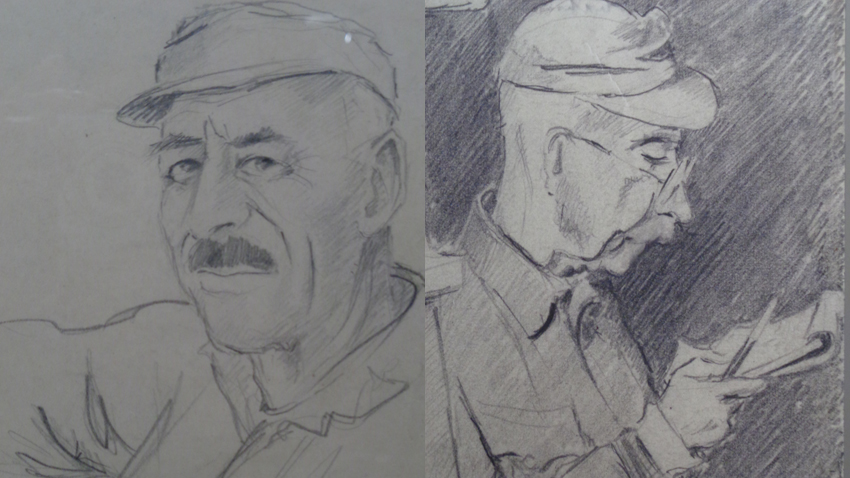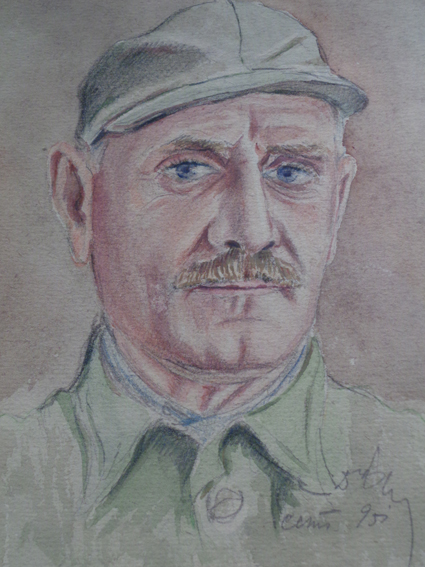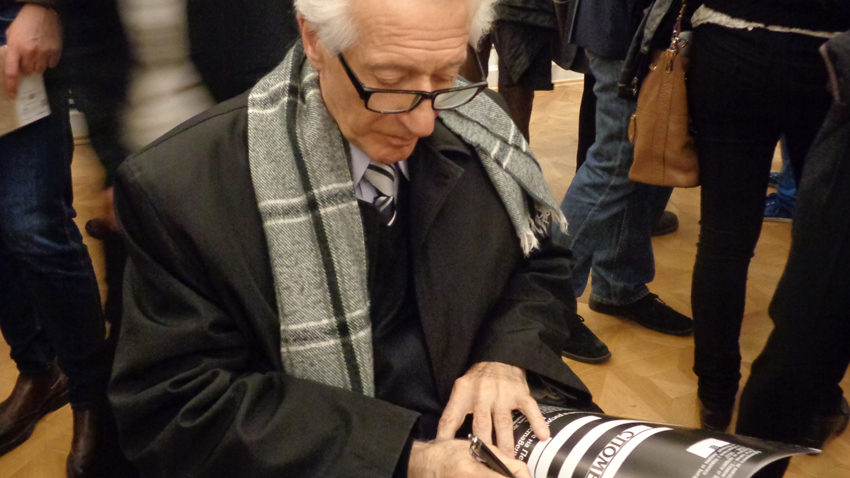An unusual exhibition has opened at the National Gallery of Art in Sofia featuring portraits of inmates of the communist labor camp at Belene, Northeastern Bulgaria. The display marks the 25th anniversary since the start of democratic changes in this country. The portraits were secretly drawn by Petar Baychev, a doctor of law and artist. He spent close to five years in the communist camp. The people from the portraits had been sent to Belene for political and biographical reasons. „Today more than ever the memory of their suffering is alive and will never be wiped out from the nation's history. We will not let this happen. I wish success to the exhibition. I hope that it is yet another breakthrough in the wall of deception and oblivion. Let truth be invariably our cause”, President Rosen Plevneliev said at the event's opening.

The exhibition is the work of the Institute for Studies of the Recent Past. Its archives keep roughly 10,000 pages of interviews with political prisoners and labor camp inmates during communism. „We want to establish the truth and to hand it down to young generations”, the Institute's Director Prof. Ivailo Znepolski says. “It is important to show that period through the prism of the private lives. We have to find out what happened to a man when the machine of violence ran him over, broke him down, destroyed his life's program, rendered futile the skills, competences and talents he had and threw him into society's periphery? Petar Baychev was one of those new pariahs sent to the camps by the communist regime, divided forcefully from their families and placed to exist in inhuman conditions. Even after he was released he was banned from practicing law and from returning to his own home. Nevertheless, he has left a legacy suggesting that he was a gifted man with strong will who managed to be internally free even in the communist camp.”

 “Selecting from a huge faceless crowd dressed in gray tattered military greatcoats or whatever they could get, he focused on a group of people who had special value in his eyes”, Prof. Znepolski goes on to say. “This was the former elite of the country: MPs, cabinet ministers, leaders of the political opposition and of pre-1944 bourgeois parties, military generals, industrialists and bankers. This group was based on partnership - of the people who wanted to remain free, despite the miserable conditions they faced. So, I can see a dual value of Petar Baychev's legacy. In the first place he wanted to tell Bulgarians that he had secretly created and kept those portraits in times of communist repressions. His experience however is telltale of something else: notably that despite suffering indescribable hardships, he still managed to earn a space of internal freedom, to communicate with fellow inmates and to create their portraits leaving evidence: 'It was them, they looked like this and lived like this. The people that you know from official chronicles and government reports were turned into what you can see in my works. I, Petar Baychev, was there and this is my report.'”
“Selecting from a huge faceless crowd dressed in gray tattered military greatcoats or whatever they could get, he focused on a group of people who had special value in his eyes”, Prof. Znepolski goes on to say. “This was the former elite of the country: MPs, cabinet ministers, leaders of the political opposition and of pre-1944 bourgeois parties, military generals, industrialists and bankers. This group was based on partnership - of the people who wanted to remain free, despite the miserable conditions they faced. So, I can see a dual value of Petar Baychev's legacy. In the first place he wanted to tell Bulgarians that he had secretly created and kept those portraits in times of communist repressions. His experience however is telltale of something else: notably that despite suffering indescribable hardships, he still managed to earn a space of internal freedom, to communicate with fellow inmates and to create their portraits leaving evidence: 'It was them, they looked like this and lived like this. The people that you know from official chronicles and government reports were turned into what you can see in my works. I, Petar Baychev, was there and this is my report.'”
The artist's daughter and son Ilina and Vesselin Baychev attended the exhibition's opening:
„Our father could hardly imagine our day, while he sketched portraits during his time free from salve labor in the camp using whatever paper he could lay his hands on and writing shorthand notes about camp life”, Ilina Baycheva says. “In one of four small pieces of paper written in the shorthand and sent illegally, he wrote the following to our mother: 'Keep these notes, I may need them at a certain point'. He could not live to reach that point but the need for this exhibition to take place has emerged after all, and here it is now.”

English Daniela Konstantinova
On November 22 and 23, the Bulgarian Orthodox Church will solemnly celebrate the 100th anniversary of the consecration of the Patriarchal Cathedral "St. Alexander Nevsky" . For a century the cathedral has been "a witness to all the hopes and..
The Feast of the Epiphany - the entry of the Theotokos into the Temple - is one of the oldest and most revered feasts in the Orthodox world. It was introduced in Constantinople around the 8th century during the time of Patriarch Tarasius. It was six..
The Museum of the Jewish People in Tel Aviv , Israel, today commemorates the 130th anniversary of the birth of Dimitar Peshev, a righteous man of the nations of the world, deputy chairman of the 25th National Assembly of Bulgaria, the Bulgarian..
The head of the statue of Tyche, the goddess of Philippopolis, has been discovered in the Episcopal Basilica in Plovdiv, said the head of the..
On November 30, the Bulgarian Orthodox Church honors the memory of St. Apostle Andrew . In Bulgaria the saint is known as Saint Andrey and the folk..

+359 2 9336 661
